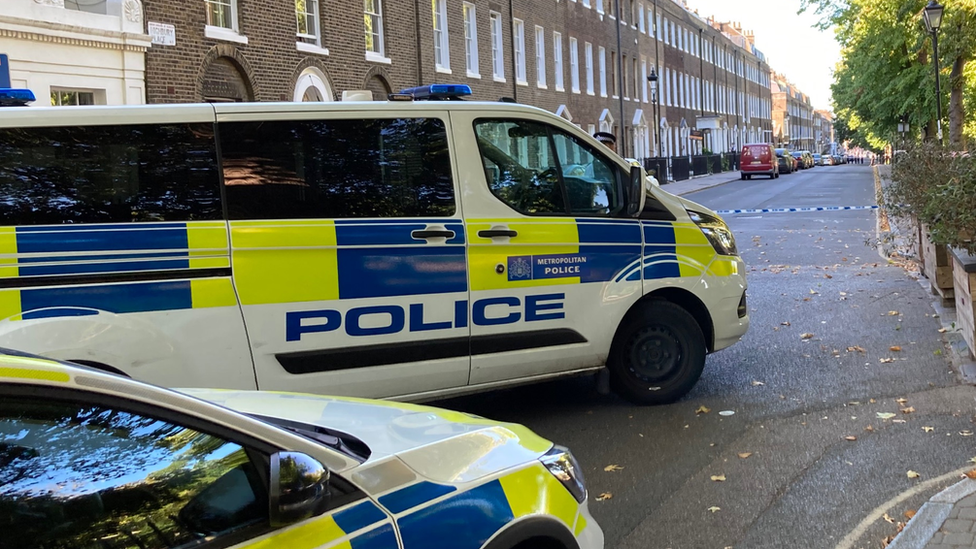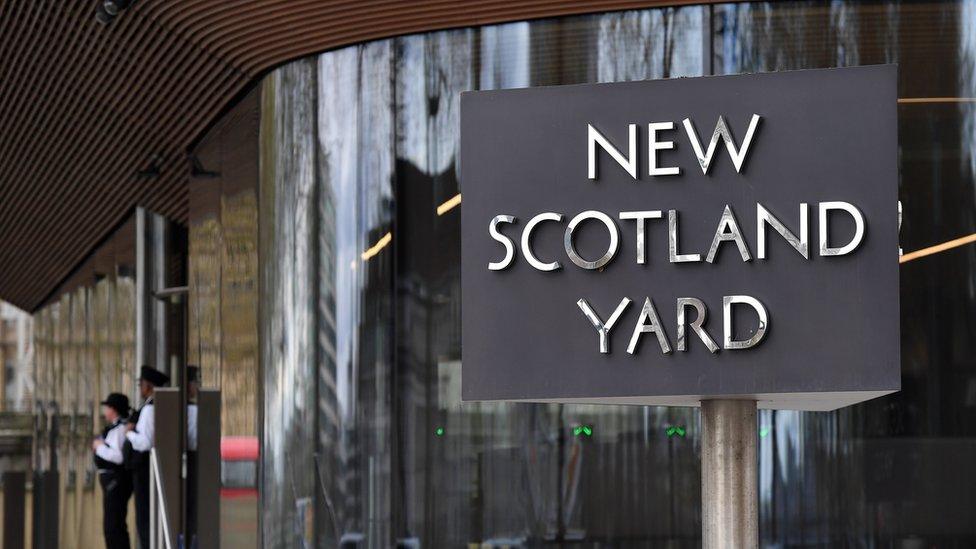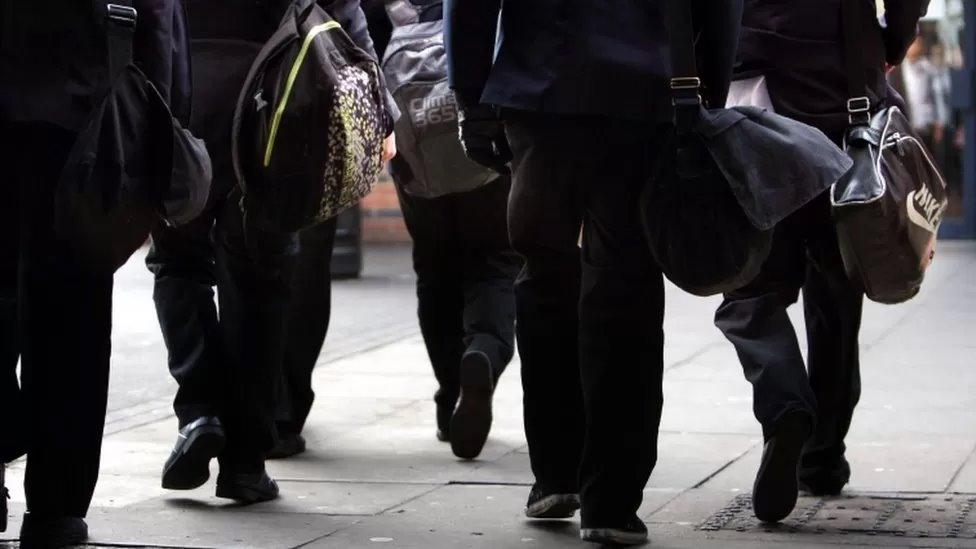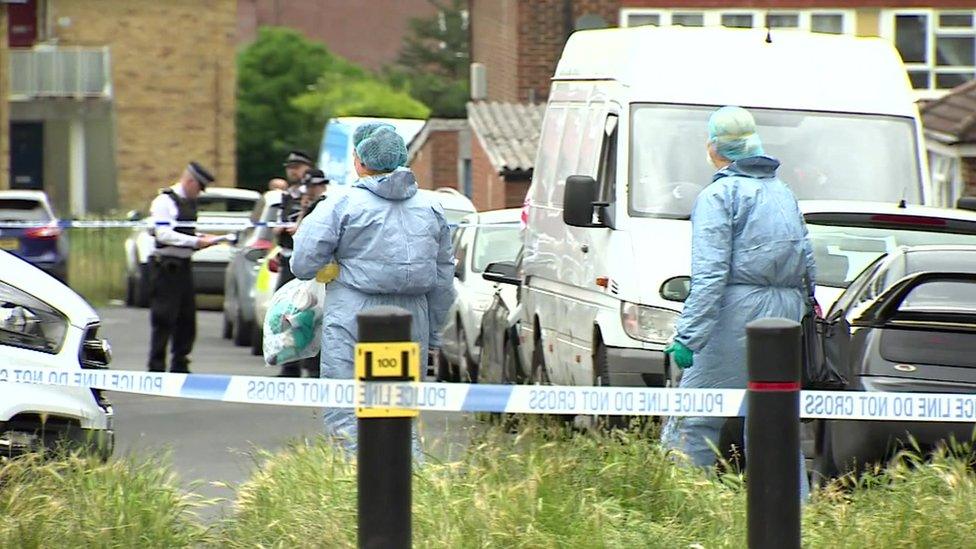London homicides driven by drugs and social media, study finds
- Published

Homicides are costly to public services
Drugs, missed mental health sessions and social media usage are factors driving homicides, a study has found.
The London Violence Reduction Unit's (VRU) report analysed police data to better understand the causes of murder and manslaughter.
Last year, there was a record number of teenage killings in the capital, despite a national Covid-19 lockdown.
Each homicide costs the police and criminal justice system an estimated £800,000, the report claims.
London's homicide rate means it would have an annual cost of about £120m.
Established by the London mayor's office, the VRU study by the behavioural insights team aimed to find a framework for experts, including the police, to deliver early and targeted interventions.
Following an analysis of 50 homicides, it found:
Existing police codes did not flag up all cases where mental health was a contributing factor
Drug-related homicides overlapped with all of the factors included in the analysis
Social media usage in homicides was more sophisticated than sharing threats or aggressive language online
The ability to delete messages on Snapchat was known and used, which may explain why it was favoured in the context of committing violence
Alcohol was more likely to contribute to homicides at particular times of day or key locations
Gang violence presented a particular homicide risk to young people
They will now use the framework to analyse another 300 cases with a view to it potentially being used more routinely in the capital.


Researchers say the project will help authorities spot patterns and make targeted improvements
Analysis by Sonja Jessop, BBC London's home affairs correspondent
The Met Police Commissioner, Sir Mark Rowley, has previously said he wanted to bring the number of homicides in London down to below 100 a year, from 130.
This report from the Mayor's Violence Reduction Unit suggests police are only one part of the solution.
There are recommendations for other agencies and policy makers too, including monitoring when someone stops engaging with mental health support and providing better guidance for young people who are being targeted on social media.
The report also highlights the gaps in the data recorded on homicides and makes recommendations for the police on how that can be improved.
Gang violence, for example, is an area where researchers say there's not enough specific information about how drugs or social media are involved, or the relationships or nature of the conflict.
Researchers say the clues are often there, but improving the data will make it easier to spot patterns and see where current provision and policy need to be improved.

Mayor of London Sadiq Khan said: "If we are to continue reducing violence in London, it's crucial that we identify more opportunities to intervene early because I firmly believe that violence is preventable, not inevitable."
Lib Peck, director of VRU, said: "The foundation of the VRU's approach to tackling violence is to build an evidence base for what works and what doesn't."

Follow BBC London on Facebook, external, Twitter , externaland Instagram, external. Send your story ideas to hellobbclondon@bbc.co.uk, external
Related topics
- Published6 September 2022

- Published10 January 2022
